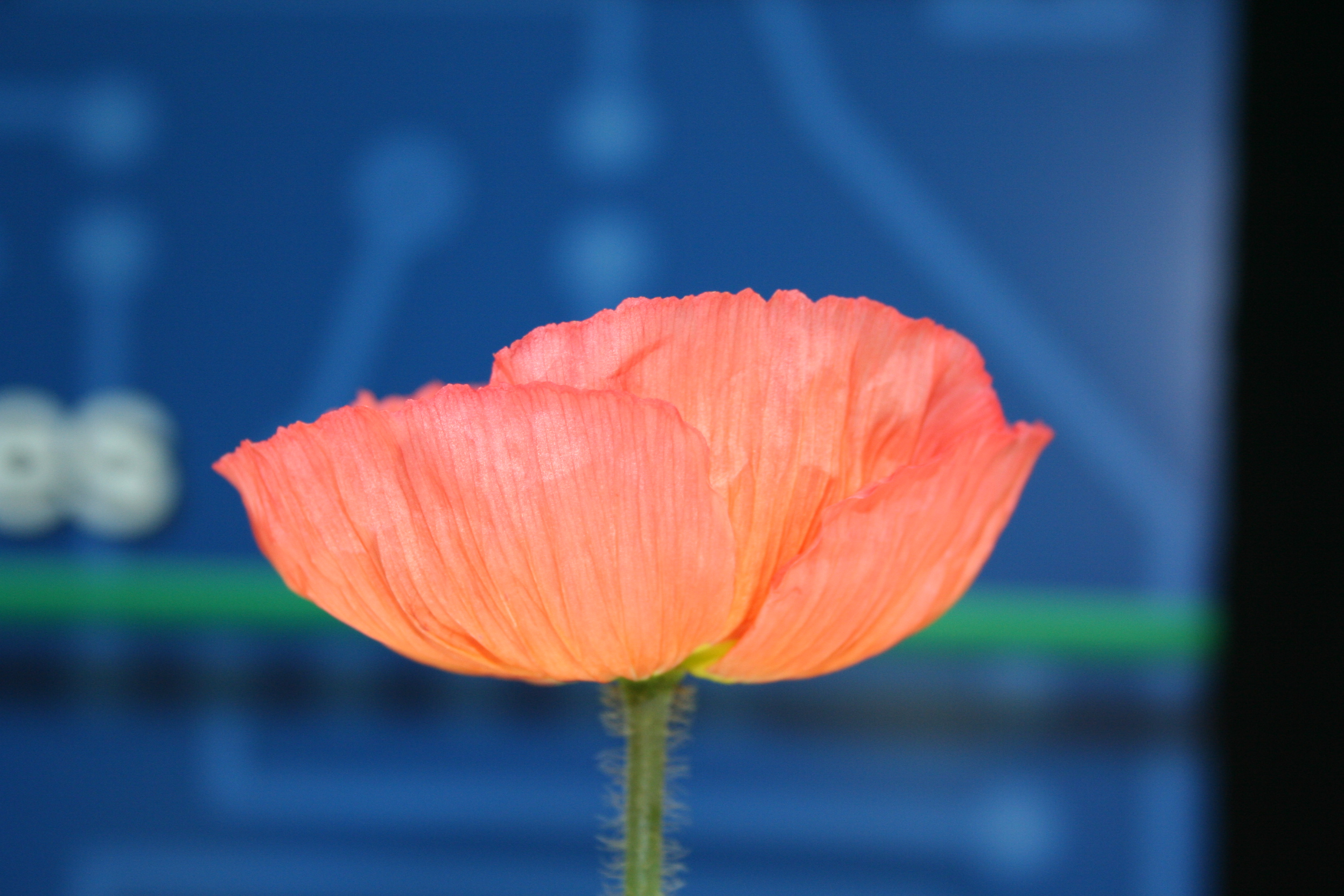A special flower will grace the University Open House

A fragrant scent may waft through Squires Student Center at the Virginia Tech University Open House on Nov. 12. The beautiful flower showcased there is thanks to pioneering research by a collaborative team from the university and the Institute for Advanced Learning and Research in Danville.
The scientists developed a technique that enables them to grow flowering plants faster, create new varieties and save endangered ones. The research also spawned a commercial enterprise, Dan River Plant Propagation Center in Danville.
Open house visitors will have a chance to learn about some of the ornamental plants that the center is growing. The business’ staff works with lilies, day lilies, azaleas, hellebores, and poppies in its high-value ornamental line. One variety they pioneered is the VT Spirit – a day lily specifically bred in the orange and maroon Virginia Tech colors. A limited number of VT Spirit plants in the pre-blooming developmental stage will be available to open house visitors for their gardens.
The business is the first commercial enterprise spun off from the Institute for Advanced Learning and Research’s Institute for Sustainable and Renewable Resources, which was created as a result of collaboration between the Virginia Tech Department of Horticulture and researchers in Danville. The scientists, lead by Barry Flinn, director of the sustainability institute, and Jerzy Nowak, former head of the horticulture department and former head of the university’s Center for Peace Studies and Violence Prevention, pioneered a technique known as micropropagation.
Micropropagation is a method of cloning biorenewable plants rapidly and reliably so that one shoot becomes 10 shoots by the second month, a thousand by the third, and a million shoots by the sixth month.
The propagation technique also helped to save a popular species of cut flower used in floral arrangements – the Icelandic Temptress poppy. The plant propagation company works with Wollam Gardens near Culpeper, Va., on the poppy. “They’re helping me out, otherwise I’d have nowhere to turn,” said owner Bob Wollam. “We’re saving a flower that wouldn’t exist after this.
The scientists at the sustainability institute envisioned a commercial spinoff venture based on this technique that would culture plant tissue for high-value ornamentals and bioenergy plants, which can be converted into fuels, chemicals and plastics. That has become a reality with the founding of the Dan River Plant Propagation Center.
Flinn says he sees the propagation center as the fruit of groundwork laid six years ago. “This operation is rare if not unique for this region,” he said. “Our strong research efforts in collaboration with the Virginia Nursery and Landscape Association have resulted in development of the VT Spirit. This initial commercial product has provided a strong indicator of the research excellence at the Institute for Advanced Learning and Research, and of the program’s ability to promote and market Virginia Tech.”

The Icelandic Temptress Poppy
The Icelandic Temptress poppy is a striking flower that would be extinct, but a new plant breeding method developed by Institute for Advanced Learning and Research and Virginia Tech scientists is saving it. The technique spawned the commercial Dan River Plant Propagation Center worked with a floral company to save the flower.







